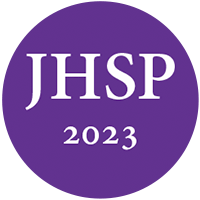Join a community of 10,000 credentialed HSPs.
Learn it today. Apply it tomorrow.
Connecting you to what you need for your career.
Lovett, B. J., & Nelson, J. M. (2018). Assessing adults for ADHD: A systematic, evidence-based protocol. Journal of Health Service Psychology, 44, 48–52.
ADHD is a childhood disorder. However, recent research suggests that some individuals have challenges that persist well into adulthood. Some adults may have had ADHD during childhood but were not diagnosed at that time. The need to diagnosis ADHD in adults exists. This article presents a model for the assessment of ADHD in adults, based on the five criteria in the DSM and using documents and other pre-existing childhood information to make the diagnosis during adulthood.
Registrants can read the full article on CE.NationalRegister.org.
Achenbach, T. M., & Rescorla, L. A. (2003). Manual for the ASEBA Adult Forms & Profiles. Burlington, VT: University of Vermont, Research Center for Children, Youth, & Families.
American Psychiatric Association. (2013). Diagnostic and Statistical Manual of Mental Disorders(5th ed.). Arlington, VA: American Psychiatric Publishing.
Barkley, R. A. (2011a). Barkley Adult ADHD Rating Scale. New York: Guilford.
Barkley, R. A. (2011b). Barkley Functional Impairment Scale. New York: Guilford.
Barkley, R. A. (2011c). Barkley Deficits in Executive Functioning Scale. New York: Guilford.
Barkley, R. A., Murphy, K. R., & Fischer, M. (2008). ADHD in adults: What the science says. New York: Guilford.
Boone, K. B., Lu, P., & Herzberg, D. (2002). The Dot Counting Test. Los Angeles, CA: Western Psychological Services.
Caye, A., Swanson, J., Thapar, A., Sibley, M., Arseneault, L., Hechtman, L., … & Rohde, L. A. (2016). Life span studies of ADHD: Conceptual challenges and predictors of persistence and outcome. Current Psychiatry Reports, 18(12), article 111.
Cepeda, M. S., Fife, D., Berwaerts, J., Friedman, A., Yuan, Y., & Mastrogiovanni, G. (2015). Doctor shopping for medications used in the treatment of attention deficit hyperactivity disorder: Shoppers often pay in cash and cross state lines. The American Journal of Drug and Alcohol Abuse, 41(3), 226-229.
Conners, C. K., Erhardt, D., & Sparrow, E. P. (1999). Conners adult ADHD rating scales (CAARS): Technical manual. North Tonawanda, NY: Multi-health Systems.
Dvorsky, M. R., Langberg, J. M., Molitor, S. J., & Bourchtein, E. (2016). Clinical utility and predictive validity of parent and college student symptom ratings in predicting an ADHD diagnosis. Journal of Clinical Psychology, 72(4), 401-418.
Fayyad, J., Sampson, N. A., Hwang, I., Adamowski, T., Aguilar-Gaxiola, S., Al-Hamzawi, A… & Gureje, O. (2017). The descriptive epidemiology of DSM-IV Adult ADHD in the World Health Organization World Mental Health Surveys. ADHD Attention Deficit and Hyperactivity Disorders, 9(1), 47-65.
Gordon, M. (2009). ADHD on trial. Westport, CT: Praeger.
Green, P. (2003). Green’s Word Memory Test for Windows: User’s manual. Edmonton, Canada: Green’s Publishing.
Huhn, M., Tardy, M., Spineli, L. M., Kissling, W., Förstl, H., Pitschel-Walz, G…. & Leucht, S. (2014). Efficacy of pharmacotherapy and psychotherapy for adult psychiatric disorders: a systematic overview of meta-analyses. JAMA Psychiatry, 71(6), 706-715.
Kessler, R. C., Green, J. G., Adler, L. A., Barkley, R. A., Chatterji, S., Faraone, S. V…. & Russo, L. J. (2010). Structure and diagnosis of adult attention-deficit/hyperactivity disorder: Analysis of expanded symptom criteria from the Adult ADHD Clinical Diagnostic Scale. Archives of General Psychiatry, 67(11), 1168-1178.
Knouse, L. E., Teller, J., & Brooks, M. A. (2017). Meta-analysis of cognitive-behavioral treatments for adult ADHD. Journal of Consulting and Clinical Psychology, 85(7), 737-750.
Lovett, B. J., & Davis, K. M. (2017). Adult ADHD assessment: An integrated clinical-forensic perspective. Professional Psychology: Research and Practice, 48(6), 438-444.
Marshall, P. S., Hoelzle, J. B., Heyerdahl, D., & Nelson, N. W. (2016). The Impact of failing to identify suspect effort in patients undergoing adult attention-deficit/hyperactivity disorder (ADHD) assessment. Psychological Assessment, 28, 1290-1302.
Copyright © 2024 All rights reserved. National Register of Health Service Psychologists










